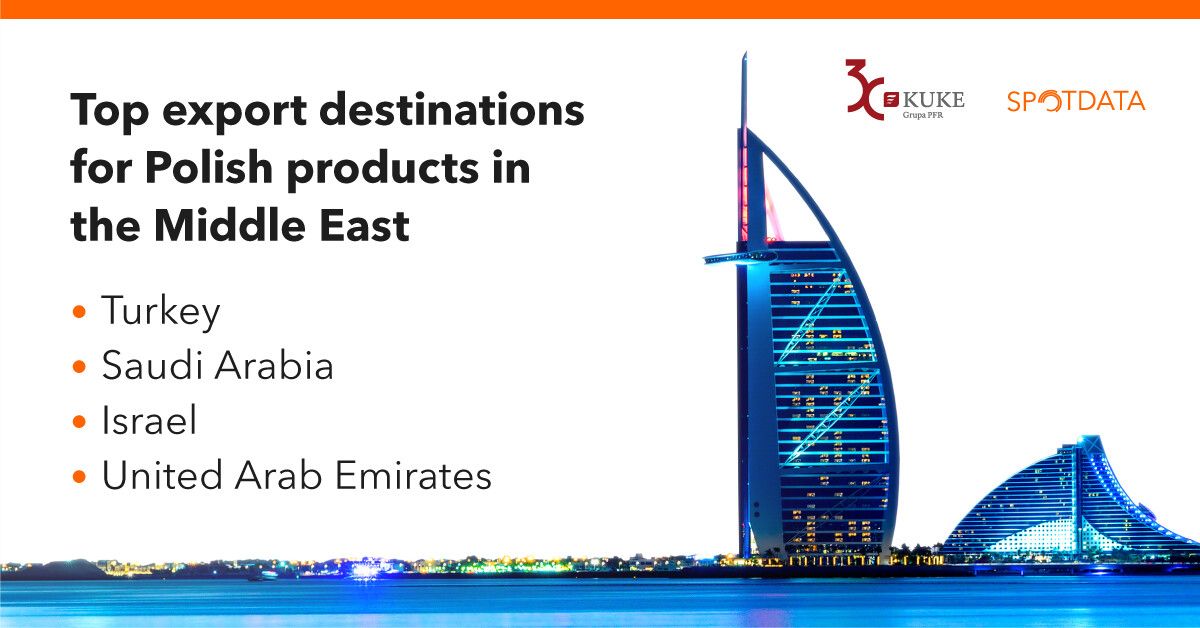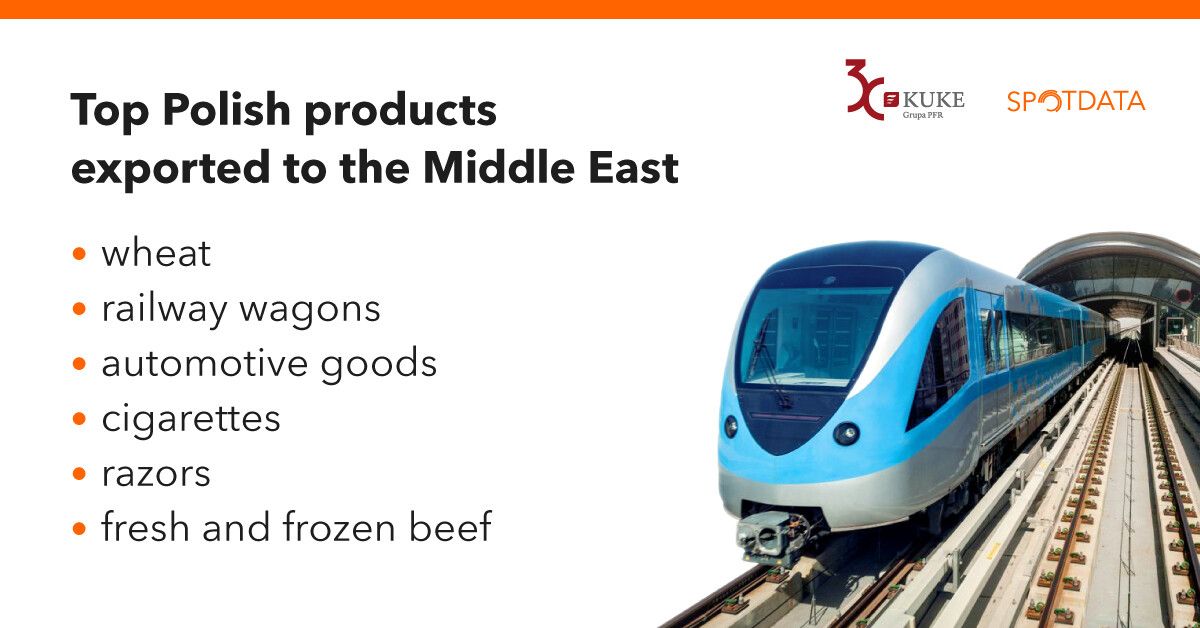Polish Exports to the Middle East

Together with the analytical center SpotData we have taken a closer look at Polish exports to countries in the Middle East. This publication is part of a more extensive report which analyses 30 years of Polish exports.
Geographic distribution of Polish exports to the Middle East
The main countries in the Middle East to which exports from Poland go to are Turkey, Saudi Arabia, Israel, and the United Arab Emirates. In the years 2001–2020, the total value of exported goods to all the countries in the Middle East has increased from around USD 0.5 to 5.1 billion, and their share in Polish exports has risen from 1.2% to 2.2%. This means, for instance, that the share of countries in the Middle East in total Polish exports of goods is generally smaller than that of Hungary (2.5%) and half the size of the Netherlands (4.2%). This is nevertheless a potentially promising market considering, for example, the number of inhabitants (e.g., Turkey 82 million persons, Iran 82 million persons, and Saudi Arabia 34 million persons). In this group of countries, Turkey has the largest share in Polish exports (0.9%, USD 2.2 million in 2020), followed by Saudi Arabia (0.4%, approx. USD 1 billion in 2020) and Israel (0.3%, approx. USD 0.7 billion in 2020).

Top Polish products exported to the Middle East
In 2020, wheat had the largest share in exports of goods to the Middle East (approx. USD 360 million), which was sold by Polish companies almost exclusively to Saudi Arabia. Although wheat had a significant, increasing share in the exports of goods to countries in the region over the past decade, it constituted Poland’s export hit only in 2020. A year earlier, in 2019, railway wagons (approx. USD 250 million) had the largest share in exports from Poland to Middle Eastern countries, most of which were sold by Polish enterprises exclusively to the United Arab Emirates as part of the investments in the development of their track-based modes of transport. There was a similar situation in 2018 when railway wagons were in fourth position on the list of the highest in value export commodities. Back then, their main buyer was Saudi Arabia which was also modernizing its rail system.

Apart from wheat and railway wagons, which in recent years climbed to the top of the Polish export hit list to the Middle East, sales of Polish companies to countries in the region are dominated by products of the automotive industry, mainly combustion engines (approx. USD 200 million in 2020), passenger cars (approx. USD 180 million in 2020), and vehicle parts and accessories (approx. USD 120 million in 2020). Although almost continuous growth was recorded since 2017 for combustion engine sales – at the time reaching a value of approx. USD 350 million – their sales slowed greatly in subsequent years (down to a level of approx. USD 200 million in 2020). Similarly, after 2017, there was a significant reduction in the volume of sales of passenger cars from approx. USD 444 million in 2017 to USD 180 million in 2020. This gap was only partially compensated by the increased sales of car parts, which was up from approx. USD 50 million in 2014 to USD 120 million in 2020.
In 2020, cigarettes also constituted one of top Polish products sold to buyers in the Middle East. Sales of cigarettes grew from approx. USD 10 million to over USD 150 million – almost exclusively due to rise in exports to Saudi Arabia.
Another export hit to countries in this region are razors – their sales from Poland have been growing systematically since 2011, reaching USD 160 million in 2020.
Fresh and frozen beef also holds a high position in Polish exports to the countries of the Middle East. This is a top Polish export product sold to Israel, which annually imports beef from Poland worth approx. USD 80 million. In 2018, Turkey was the largest importer of beef in the region (approx. USD 110 million), but Polish manufacturers could not maintain their presence on this market in the following years.
Protect yourself in the event of non-payment by your customers.
- Grow your business without worrying about getting paid.
- Export safely even to the most remote markets across the world.